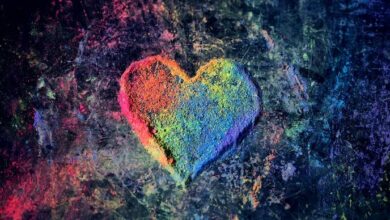Discover Why Kochi is the city capturing the attention of people worldwide
Kochi is breathtakingly gorgeous. It has vibrant ports, scenic backwaters, and a varied cultural landscape. People from all over the globe are drawn to this city’s beautiful beaches and cobblestone walkways along its whole coast. Kochi continues to receive international recognition for its contemporary art shows and its antique Chinese fishing nets.

1. An Influence from Europe
Kochi’s international reputation stems from its history. The city’s history as a commercial hub for European empires is reflected in its architecture, culture, and character. During its heyday, the Portuguese, Dutch, and British all engaged in battles for control of Kochi’s spice lanes. Relics from this era may still be seen all throughout Fort Kochi.
2. A Multicultural Neighborhood Called Jewish Town
Fort Kochi is a thriving center that represents the diversity that used to be prevalent in this area. One of the Commonwealth’s oldest continuously operating synagogues is Paradesi Synagogue in Jew Town. Sip chai tea and take your time meandering around these little roads, which are lined with charming cafés and antique stores.
3. Chinese Fishing Nets: Symbolic Buildings
Though only those who have seen them can really convey how amazing they are, you’ve undoubtedly heard about them. Although these wooden buildings still border the beach, they were first brought here by Chinese merchants during Kublai Khan’s rule in the fourteenth century. Their shadows against the skyline provide ideal photo opportunities as soon as the sun sets.
4. Diversity at its Finest: Welcome to Kochi’s ethnic melting pot, where there are art exhibits and plenty of cuisine! People come from all over the world to see modern art from across the globe every two years at the Kochi-Muziris Biennale, which is regarded as India’s cultural center! The city’s culinary landscape is as varied, with Arab and Syrian Christian cuisines coexisting alongside Malayali.
Kerala’s historic port city of Kochi is home to a number of important marine buildings. Three notable sites are Bolgatty Palace, Mattancherry Palace, and the Indo-Portuguese Museum. They provide insightful information on the history and maritime heritage of the city. Hendrik Adriaan van Reede tot Drakestein, the Dutch governor, formerly called Bolgatty Palace, which is situated on Bolgatty Island and overlooks Vembanad Lake.
Now, it serves as a posh historical hotel. However, the magnificent paintings of Mattancherry Palace, also called Dutch Palace, include images from The Ramayana and Hindu mythology.
5. Conserving Kochi’s Legacy: Obstacles & Preservation Attempts
Kochi is well-known and culturally significant in India, yet the city still has to deal with a lot of issues related to development and waste-related pollution. Additionally, construction has been growing out of control at the cost of natural areas and historical sites, endangering Kochi’s attractiveness, which draws tourists from all over the globe.
Local governments and organizations, such as the Indian National Trust for Art and Cultural Heritage (INTACH) and other historical trusts, are putting in a lot of effort to preserve these locations and encourage eco-friendly travel methods.
Finally, Kochi: A Place of Harmony and History
When you consider everything that Kochi has to offer in terms of architectural marvels, global appeal, and historical history, it is difficult to see why it is regarded as Kerala’s cultural capital.
Many tourists are drawn to it by its classic elegance, and they are also drawn by its lively energy. It is reasonable to state that your senses will always be stimulated while you are here, thanks to the arts scene that blends modern concepts with colonial-era architecture and historic districts next to serene backwaters.
Kochi, a treasure on India’s coastline, is dedicated to retaining the enchantment of its history even as growth continues to shape its future aspirations. Come view these hidden gems and treasures near the Arabian Sea.







